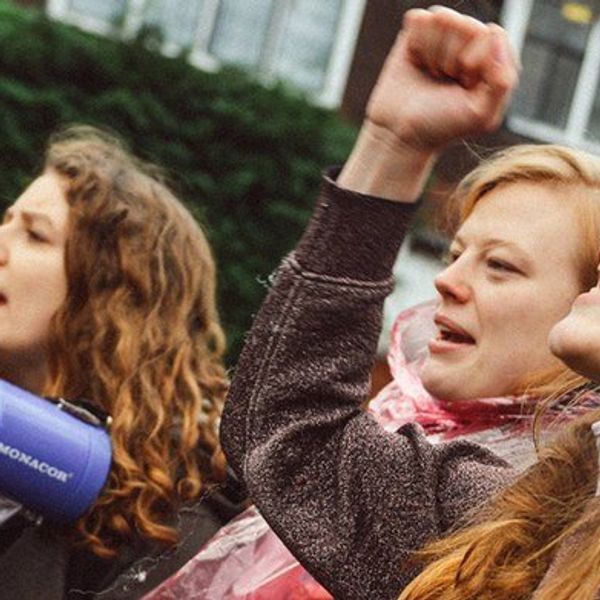As school starts back up again, many students are preparing for the upcoming year. School supplies are running scarce, lockers are being decorated, and universities are beginning to send out welcome letters to incoming freshmen. In fact, the University of Chicago recently sent out its own letter of welcome to the incoming class of 2020, warning students that in the future, the university will not condone "trigger warnings" or "intellectual safe spaces" for students. To some, this letter is praise-worthy because it shows that the school is standing firm in its ideal of academic freedom, shirking political correctness in its stead. While it's true that the University of Chicago's dedication to freedom of expression, civil discourse, and diversity of opinion is admirable, to many incoming students, this letter is more about control and exclusion than any of these qualities.
When considering the implications of the school's no-trigger-warning policy, it is important to know exactly what a trigger warning is. Contrary to the subliminal messages of the missive, trigger warnings are not put into place so that students can push aside any knowledge by which they may be made slightly uncomfortable, ignoring all other perspectives and opinions. Trigger warnings in academia are not meant to coddle students or impede on anyone's freedom of expression. By all definitions, a trigger warning is a statement at the beginning of a piece of writing, video, lecture, etc. that alerts the viewer to potentially distressing material. It is no different than the warnings that show at the beginning of graphic crime shows, or rating screens that come before a movie begins at the theater.
On college campuses, trigger warnings are generally requested by students who suffer from some form of PTSD or anxiety. Most students do not appeal for trigger warnings just to prevent their professor from speaking about an uncomfortable topic, or sharing a controversial opinion. For example, it is well known that many campuses are hosts to all forms of sexual assault. It would be a nice courtesy for a professor to warn students before reading a work that may include a rape scene or something of that nature so that a student who has been assaulted can avoid being "triggered" by such a scene and prepare to react in a more healthy way.
The University of Chicago's decision to condemn trigger warnings and intellectual safe spaces is, above all, a discredit to the students. In their letter, the school is essentially invalidating their students' personal agency in both their education and mental health. Scholars go to college to expand their points of view and grow as people, but it's hard to do so if they are forbidden from advocating for themselves. Not only that, but this ban creates a hostile, exclusionary environment for all students, especially those experiencing some kind of trauma, anxiety, or PTSD. It is important for institutions of higher education to be welcoming and understanding of all students, instead of stifling their needs under arrogant proclamations of anti-political correctness. Hopefully, other colleges (and professors) will see the futility of such a ban on trigger warnings and strive to continue making their institutions safe, open places to learn, discuss, and grow.





















